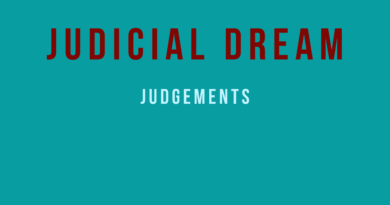SEC 378 CRPC
M/s. Kalamani Tex vs. P. Balasubramanian, SC 2021
The trial Court disbelieved the respondent’s claim and observed that he had failed to establish a legally enforceable liability on the date of issue of cheque. The Court held that since the basic ingredients of an offence under Section 138 of the NIA were not satisfied, the complaint was liable to be dismissed.
Discontented with the order of the trial Court, the respondent preferred a criminal appeal before the High Court, wherein, the Court noted that Appellant No.2 had admitted his signatures on both the Cheque and the Deed of Undertaking and had thus acknowledged the appellants’ liability. The High Court therefore vide impugned judgment allowed the criminal appeal and convicted both the appellants under Section 138 of NIA.
SC held that the trial Court completely overlooked the provisions and failed to appreciate the statutory presumption drawn under Section 118 and Section 139 of NIA. The Statute mandates that once the signature(s) of an accused on the cheque / negotiable instrument are established, then these ‘reverse onus’ clauses become operative. In such a situation, the obligation shifts upon the accused to discharge the presumption imposed upon him.
The SC farmed the question that whether the High Court erred in reversing the findings of the trial Court in exercise of its powers under Section 378 of CrPC?
The court held that having given our thoughtful consideration to the rival submissions, we do not find any valid ground to interfere with the impugned judgment. It is true that the High Court would not reverse an order of acquittal merely on formation of an opinion different than that of the trial Court. It is also trite in law that the High Court ought to have compelling reasons to tinker with an order of acquittal and no such interference would be warranted when there were to be two possible conclusions. Nonetheless, there are numerous decisions of this Court, justifying the invocation of powers by the High Court under error of law or grave miscarriage of justice or it arrived at a perverse finding of fact.
On a similar analogy, the powers of this Court under Article 136 of the Constitution also do not encompass the reappreciation of entirety of record merely on the premise that the High Court has convicted the appellants for the first time in exercise of its appellate jurisdiction.



